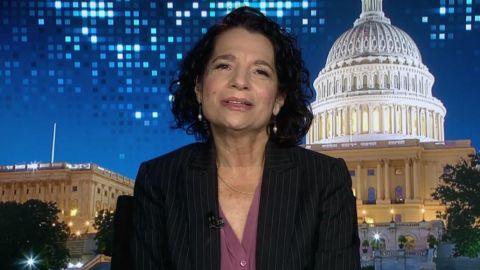Read Transcript EXPAND
CHRISTIANE AMANPOUR: And then you go on to say, “We tolerate too little today and hate too much. But unfortunately, there is a time to hate and there are people whom we should detest. They deserve to die. We should kill them as soon as legally possible.” Tell me how you justify that.
ROBERT BLECKER, PROFESSOR, NEW YORK SCHOOL OF LAW: Yes, that’s correct. Let’s not forget that the preamble to the United States constitution after calling for a more perfect union calls for justice. And for me, the ultimate question is not a utilitarian question, it’s not a question of costs and benefits, it’s not a question of future benefits, it’s not a question of deterrence. Although, I believe that the death penalty is a greater marginal deterrent. Most studies disagree with that. But all of that is irrelevant. The question is now what good it will do in the future, the question is what’s bad has been done in the past and what is deserved. Every moral question is ultimately an emotional question. So, yes, I am a retributivist. That’s not — retribution is not equivalent to revenge, although they come from a common wellspring of a desire to inflict pain and suffering on those who have inflicted pain and suffering on us. The difference between retribution and revenge, although for both the past counts and in accounts independently future benefit, the difference between the two is that retribution, unlike revenge, has to be limited, has to be proportional and has to be appropriately directed.
AMANPOUR: Right.
BLECKER: So, that we retributivists are just as concerned with not over punishing as we are with adequately punishing. And that’s why I say I split with the president, I’m sure, and many of the people whom he would select to execute who I think deserve very serious punishment but do not deserve to die.
AMANPOUR: And that’s the moral question. Thank you, Robert Blecker. Then I am going to now turn to Ruth Friedman where she obviously fiercely opposes the federal death penalty and she calls it arbitrary, racially biased and full of poor lawyering. So, welcome to you Ruth Friedman from Washington, D.C.
RUTH FRIEDMAN, REPRESENTS INMATE SCHEDULED FOR EXECUTION: Thank you.
AMANPOUR: Can I first ask you to respond to that view of the moral imperative, that retribution is justified, it is not want and revenge and it is designed for narrow purposes?
FRIEDMAN: Well, I’m glad to hear, first of all, that we agree it is not a deterrent. No study says that it’s a deterrent or meant to make anybody safer. If we’re going to have a death penalty, then it has to be even handed, it has to be fair. And that is not the death penalty that we have. These talks about — Professor Blecker was talking about the worst of the worst. This — how do we know that this is the worst of the worst? There are thousands and thousands of murders committed in this country every day yet, a small select few are chosen for the death penalty. When you look at the federal death penalty, you find that almost half of the people on federal death row come from just three states, Texas, Missouri and Virginia. Does that mean that the worst murderers in the whole country are only committed in those three states? You pointed to racial bias, which we see it’s the same numbers in the federal death penalty that we see in the state death penalties all over the country. It’s the same kind of errors that we see that you’ve been talking about. That goes to the heart of morality, as well.
About This Episode EXPAND
Robert Blecker and Ruth Friedman join Christiane Amanpour to outline both sides of the death penalty debate. Gideon Raff and Daniel (identity masked) join the program to discuss the film “The Red Sea Diving Resort.” Walter Isaacson speaks to award-winning journalist for The New York Times Magazine, Nikole Hannah-Jones, about busing and desegregation.
LEARN MORE


